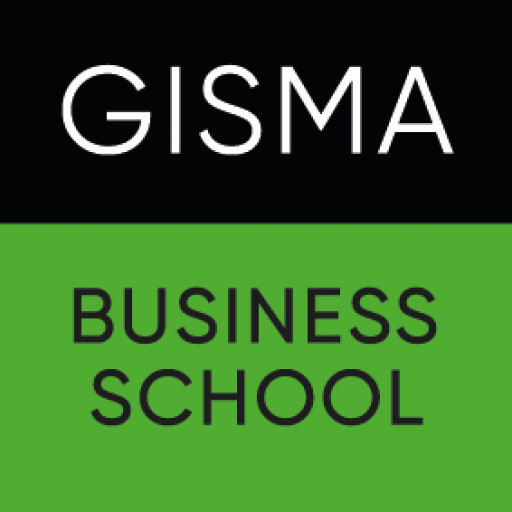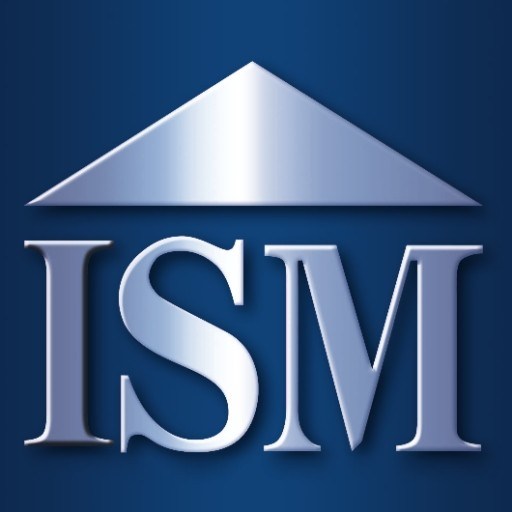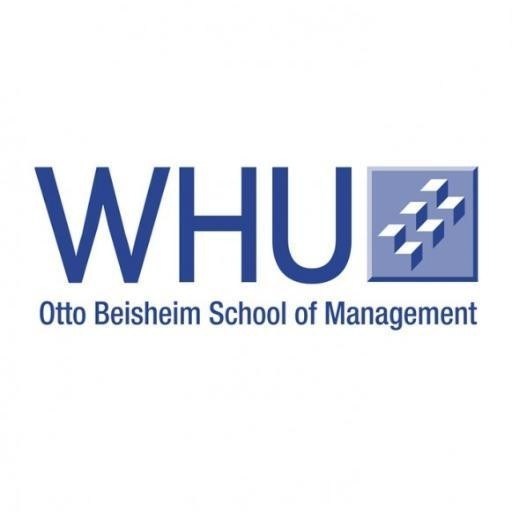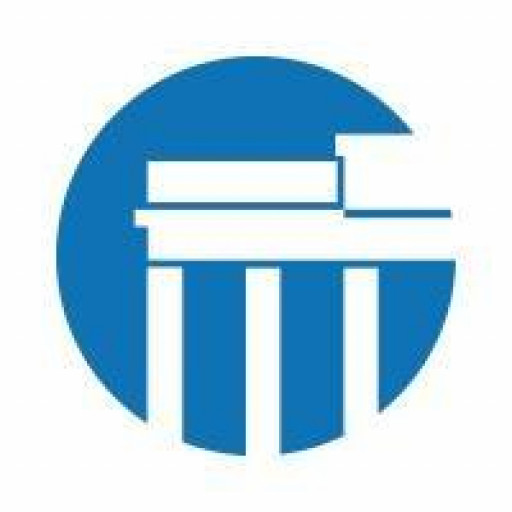Photos of university
Master of Science in Money and Finance at Goethe University Frankfurt offers a comprehensive and rigorous curriculum designed to equip students with in-depth knowledge and practical skills in the fields of finance, banking, and monetary economics. This program emphasizes quantitative methods and analytical techniques to analyze financial markets, assess risks, and understand the functioning of monetary systems. Students will gain a solid foundation in financial theory, econometrics, and the regulatory environment, preparing them for careers in banking, asset management, financial consulting, or further academic research. The program combines theoretical coursework with applied projects, fostering critical thinking and problem-solving abilities necessary for the dynamic financial industry. Students have the opportunity to learn from renowned faculty members who are experts in their fields and to participate in seminars, workshops, and internships that enhance their professional development. The Master's program also emphasizes international perspectives, encouraging students to understand the global financial landscape and cross-border economic interactions. Graduates of this program will be well-positioned to pursue careers in financial institutions, regulatory agencies, or to continue their studies in doctoral programs. The curriculum is structured to develop essential skills such as quantitative analysis, financial modeling, and decision-making based on empirical data, ensuring that students are prepared to meet the challenges of modern finance. With its location in Frankfurt, a major financial hub in Europe, the program provides students with valuable networking opportunities and insights into the financial industry. Overall, the Master of Science in Money and Finance at Goethe University Frankfurt is designed to cultivate highly skilled graduates capable of making meaningful contributions to the financial sector and the broader economy.
Important: students that began their studies before winter term 2014/15 have a slightly different course schedule and will have to stick to the original study plan that is presented in their guidelines. If there are changes, we will notify all current students in the program.
The Master’s Program in Money and Finance is designed as a four-semester program, with the fourth semester being devoted to research and writing of a master’s thesis. It has five major components:
- Fundamental Courses (five courses)
- Money or Finance Electives (at least four courses)
- Supplementary Courses (two courses)
- Seminars (at least two seminars in addition to the compulsory thesis seminar)
- Master’s Thesis
Fundamental Courses are intended to provide the basic tools for the subsequent courses and the thesis work. As such, they are required for all students. Three courses provide the necessary background in Microeconomics, Macroeconomics and Econometrics. Two courses are devoted to Asset Pricing and to Corporate Finance. Short descriptions of the content of the fundamental courses are provided here.
Money or Finance Electives are chosen from two lists of available courses, one coded Money and one coded Finance. These courses are intended to provide advanced and specialized knowledge in areas that should be chosen by the student and reflect future career plans. Results from recent, cutting-edge research in these areas are distilled in order to extract lessons relevant for banking and financial practice, as well as for policy design. Students are required to have completed at least two courses from each list by the end of the program. The lists of Money or Finance courses are provided here, together with short course descriptions. The lists are indicative and will be continually updated to reflect new trends in relevant research and changes in the composition of the pool of instructors.
Supplementary Courses are intended to provide a close look at how academic principles are applied to policy and industry work. They are typically instructed by central bankers and practitioners in the banking and financial sector. While core and elective courses draw on the research expertise of the Goethe University, topical courses take advantage of our location by drawing on our extensive links to financial institutions in Frankfurt. Students are required to take two supplementary courses. The list of supplementary courses is again indicative. It is expected that the list will be revised more frequently than the list of electives, in our effort to focus on current issues and state-of-the-art practices.
Seminars encourage students to read, think, and work extensively on a topic of interest to them and afterwards present their work together with all other students. A seminar provides a natural setup for learning how to make effective presentations of specialized topics, as well as how to benefit from the knowledge of others. Seminars are sometimes held outside the university, in locations that are conducive to a productive but informal interaction between students and faculty members (e.g., in university-owned facilities in Rieszlern Resort, Austria). Each student takes at least one seminar from each track. Indicative lists of available seminars are provided here, together with short descriptions.
The Thesis Seminar provides an opportunity for final-semester students to work on their Master's thesis and present their research to faculty and to their student colleagues and to get useful feedback and guidance on completing an interesting and relevant piece of work. Each student is required to take part in the thesis seminar. This seminar will typically be offered as a "block seminar", during a 1-4 day period.
Master’s Thesis research is conducted during the last semester of the program, under the supervision of a chair contributing to the MMF Program. Mutual consent of the student and of the chair’s professor is required for supervision. The thesis is a substantive piece of work that demonstrates in-depth familiarity with a particular topic in monetary economics, finance, or their interaction, as well as ability for some original work. A typical thesis will provide an original, critical synthesis of existing research, as well as evidence of some new research undertaken by the student using relevant theoretical or empirical methods. The thesis should meet high academic standards and signals the student’s potential for independent work on challenging issues to future employers.
Course Duration
Course attendance is mandatory, and there is no distance-learning option (except for the provisions regarding master’s thesis research). Part-time studies are no longer available.
The normal duration of the program is four semesters. Students are not required to stay in Frankfurt during the fourth semester, provided that they have met all other requirements and they are working on their thesis. They are required to attend the research seminar, which will usually be offered as a block seminar over approximately 4 days.
If a student fails a fundamental course, the student has to retake the corresponding exam. Failure to pass all fundamental courses as planned in the schedules (i.e. after two semesters) results in automatic expulsion from the program. Failure to pass an elective, a supplementary course or a seminar, requires the student to substitute it with another course from the relevant category or to retake the specific course when it is offered again. In making this choice, students are encouraged to consult with the instructors in order to make sure that the course they intend to repeat or use as replacement is offered in the relevant semester.
The maximum duration of study is eight semesters. Failure to obtain a passing grade in any of the five fundamental courses after two semesters or to meet the complete requirements of the program by the end of the eight semester results in expulsion from the program.
A leave of absence interrupts the normal schedule, but is given only in exceptional circumstances (typically for well-documented medical reasons).
Course Schedule
The study plan of a MMF student beginning in the winter term 2014/2015 is summarized in the following table (total of 120 credit points). Likely changes that will be effective for the next intake of students are already incorporated here.Important: students that began their studies before the winter term 2014/15 have a slightly different course schedule and will have to stick to the original study plan that is presented in their guidelines and study regulations unless they successfully request to switch to the new study regulations.
Electives in the second and third term can be chosen from the complete list of 6 CP Modules from Money or Finance, as well as from all seminars of both areas.
MMF applicants should either hold or expect to have by the time of enrollment a bachelor’s degree or equivalent in the area of Economics, Finance, or in some related field. At the time of application, applicants need to have valid GRE (or GMAT) and TOEFL (or IELTS) results which satisfy the minimum requirements below.
Applications are filed online.
The following items are required for admission:
- Completed online application
- Degree certificates/diplomas as well as an official transcript of records (with official translations in English or German language, if relevant)
- Letter of motivation (in English, not more than 750 words)
- At least one letter of evaluation from a university faculty member who has taught the applicant. The form can be found here
- Evidence of English language proficiency for students whose native tongue is not English and who do not hold a degree or from an institution with English as the main language of instruction. You have two possibilities in this case:
While documents can be scanned for application purposes, an original TOEFL/IELTS test score report has to be submitted prior to enrollment.
- TOEFL score of at least 100 (iBT) or 600 (PBT). The TOEFL institution code for the MMF is 4258.
- IELTS with a band score of at least 7.
Further information: See the official webpages for TOEFL and IELTS
- Assessment test scores are required for all applicants for the MMF. Please make sure you register to take the GRE/GMAT, so that you have the results by the time you submit your application. Again, there are two options:
While documents can be scanned for application purposes, an original GRE/GMAT test score report has to be submitted prior to enrollment.
- Having completed the GRE test. The minimum requirement for the GRE is that you have to score at least in the 50th percentile in the Quantitative Reasoning section of the test. The GRE scores and percentiles stated in the online application system need to match exactly the scores and percentiles reported on the official GRE score report. The GRE institution code for the Master in Money and Finance is 4258.
- Having completed the GMAT test.
Applicants who have not taken the GRE can satisfy the minimum entry requirement if they have scored at least in the 50th percentile in the Quantitative section of the GMAT test. The GMAT scores and percentiles stated on the online application system need to match exactly the scores and percentiles reported on the official GMAT score report. The GMAT institution code for the Master in Money and Finance is 7HK-B0-40.
Further information: See the official webpages for GRE and GMAT
- Applicants with a bachelor's degree from China, Vietnam or Mongolia have to provide an APS certificate at the time of their application
There are no tuition fees for students of the MMF program. However, students are obliged to pay an administrative fee to Goethe University which currently amounts to about 350 EUR per semester. This fee includes unlimited use of public transport in Frankfurt and the whole Federal State of Hessen.
In general, German institutions of higher education do not award scholarships themselves. There are, however, several scholarship-awarding organizations.
- The most extensive scholarship program is that offered by DAAD (German Academic Exchange Service). Advanced students may apply for DAAD scholarships, or depending on their country of origin and subject, in some cases only graduates may apply.
- Other scholarship-awarding institutions have varying conditions, for example, regarding country of origin, subject, previous study achievements, duration of support, etc. A very quick and efficient way of finding out about the appropriate scholarship is through using the scholarship database ofDAAD.
- The Goethe Money and Macro Association (GMMA), the alumni association of graduates of the Department of Money and Macroeconomics, offers an academic prize to the student with the highest average grade in MMF courses taken during the first year.
Concept and Vision
Research and teaching in the areas of monetary economics, macroeconomics, and finance in Frankfurt are being revolutionized by the establishment of theHouse of Finance at Goethe University, Frankfurt. Its establishment is intended to encourage interactions between academic departments, research institutes, and practitioners, as well as the development of innovative teaching programs that combine the strengths of its various constituents. Since August 2008, the Departments of Money and Macroeconomics, and Finance have joined forces with major research centers and institutes, such as the Center for Financial Studies (CFS), the Institute for Monetary and Financial Stability (IMFS) and the newly found research center for Sustainable Architecture for Finance in Europe (SAFE) to establish the House of Finance at Goethe University. Furthermore, the House of Finance also maintains strong ties to the Goethe Business School and the university’s law faculty to strengthen collaborative interaction between law and finance.
The Master’s Program in Money and Finance (MMF) is an innovative joint venture of the Department of Money and Macroeconomics and the Department of Finance, lcoated in the House of Finance, and is taught entirely in English, the language of the profession. The Faculty of Economics and Business Administration, within which the Department of Money and Macroeconomics and the Department of Finance operate, is accredited by AACSB in the United States. The inaugural 2008 MMF class had 29 students, 22 of whom are international students from 19 different countries. By 2013, the number of new students that join every year jumped to 45, with more than 30 of these being international students. At present, 40 students are accepted into the MMF program each year.
The House of Finance occupies impressive newly-built premises on the new Westend Campus of Goethe University, right in the heart of Frankfurt. It is situated next to Grüneburgpark and in proximity to the European Central Bank, the German Bundesbank, and a vast array of banking and financial industry firms. MMF students attend lectures in modern, fully-equipped lecture halls at the House of Finance, and at the newly-built Lecture Hall Center directly opposite the Faculty building.
MMF is aimed at high-caliber graduates of Economics, Business, and related undergraduate programs whose goal is to prepare for professional careers in the banking and financial sector. The program is designed to utilize the strengths of Goethe University and their links to the wide array of financial institutions and practitioners based in Frankfurt, in order to provide academically sound and professionally relevant education. Its key objective is to put graduates in the best position to compete for highly rewarding jobs.
Practitioners in today's banking and financial sector are faced with new challenges, as they operate in a policy environment while catering to needs of households and firms that are rapidly changing. In most European countries, the conduct of monetary policy is no longer the task of national central banks, but of the European Central Bank. Monetary policy does not amount to ‘setting the money supply’, and the role of money in monetary policy is being debated on both sides of the Atlantic. Household finances are becoming increasingly complicated. Growing numbers of households participate in a broad array of assets and debts, undertaking considerable risk in their portfolios and having to provide more for their old age to meet shortcomings of ailing social security systems. Firms face the challenges and consequences of the new monetary policy regime and of globalization in product markets, factor markets, and in banking and financial services. The Financial Crisis and changing needs of households and firms have generated new challenges for the financial sector, in product development and marketing; and in the provision and regulation of financial advice.
The MMF program is uniquely designed with such new challenges in mind.
- It combines the fields of money, macroeconomics, and finance, providing graduates with a much broader toolkit than that offered by single-field Master’s Programs in either economics or finance.
- It is also broader than typical combined Master’s Programs in economics and finance by placing greater emphasis on macroeconomic and monetary policy issues.
- MMF is specifically designed to combine academic rigor with a focus on topical issues facing policy makers and financial practitioners, and is therefore best suited for students planning professional careers in the banking and financial sector.
- The structure of the program combines regular core and elective courses with seminars and topical courses. Seminars provide hands-on experience, while topical courses are taught by high-level Frankfurt practitioners who share their experiences and insights with students.








